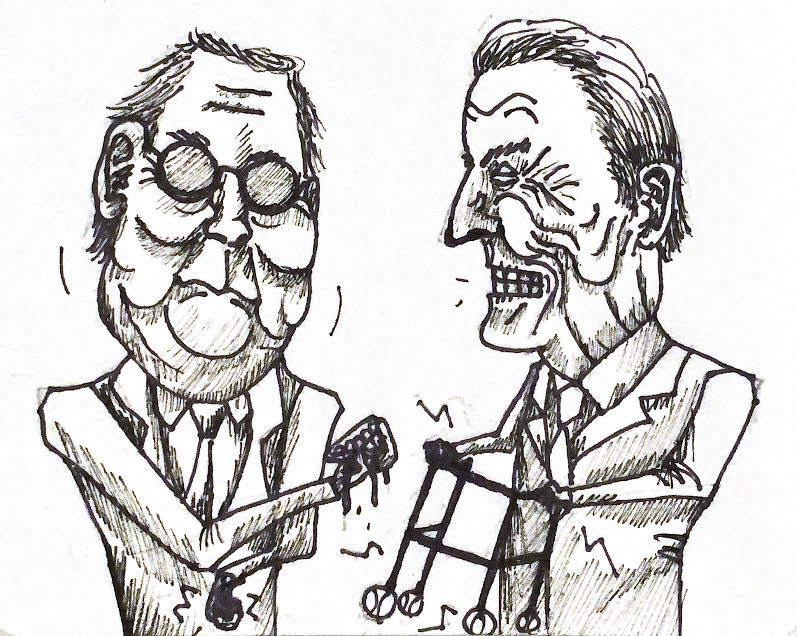Elderly dominating politics
Passing down political power for the sake of progress
When it was first announced that Joe Biden was the Democratic Party’s nominee for the 2020 presidential election, I remember feeling unsure. This wasn’t because of his political stances or past experience in office, but rather his age. As our nation’s oldest elected president at 79 years old, Biden represents how the elderly dominate the political sphere despite being out of touch with recent social issues.
This is a bipartisan issue, affecting Democrats and Republicans. Before Biden, Donald Trump served as president in his mid-seventies; currently, Senate Minority Leader Mitch McConnell is 80, and Speaker of the House Nancy Pelosi is 82. The average age of the Senate is 63.9 years, while that of the House is a slightly lower 58.3. This data begs the question: are these representatives truly capable of making and enacting laws that affect the 335 million people in the U.S.?
Since Biden’s inauguration, there’s been significant media coverage of him getting lost on stage, asking for a House representative who recently passed and losing his train of thought. It’s well-known that humans are prone to physical and mental deterioration as they age. A common suggestion to address this issue among older representatives is a yearly cognitive examination to assess their mental capacities. Though this would provide assurance for voters, politicians need to recognize their own limitations. We as constituents need to call for and support younger representatives.
This is no easy task. The current American political system revolves around the idea that experience is synonymous with qualification. However, as long as this line of logic persists, we can’t give newcomers the chance to replace our current aging representatives. People with legislative power should have experience, but even decades of it can’t prepare politicians for everything. So many of our current legislators have been in the political sphere since our parents were children, and though social and political issues have evolved a lot since then, their views on issues like abortion rights and gay marriage often remain the same.
Take Mitch McConnell for example, who despite almost 40 years in office, refuses to change his stance or retire. The stagnation of policymakers like McConnell symbolizes a significant crossroads, where experience has solidified reputation, but has not been used to directly benefit constituents. As issues like climate change take precedence among younger voters, older representatives remain hesitant to do anything, even with all their years of experience. It doesn’t seem to matter how pressing these issues are — these legislators won’t be around to bear the brunt of the consequences.
Introducing an age limit as part of public office requirements seems harsh, but it may allow us to take our future from the hands of representatives that don’t seem to care. The Constitution is very precise about its minimum age requirements for all types of political candidates, so why is it controversial to introduce a mandatory retirement age? Such a policy already exists in some other countries: for example, Germany has a mandatory retirement age of 68 for justices on its highest court. Doing so in the U.S. would make room for new candidates to run for office and address problems neglected by their predecessors.
Then again, an influx of young people into government roles may not be well-received by older generations, especially those remaining in office. Our generation is often labeled as “radical” or “too sensitive” for believing we can make a difference for the greater good. We see issues every day that need to be addressed. If we can’t vote for the change we want, running for office could allow us to do it ourselves. Unfortunately, unless our representatives remember how to compromise, more of us in influential positions wouldn’t guarantee true progress.
It’s clear our government doesn’t reflect our country’s age demographics or the views of younger generations. The elderly’s political domination needs to end for the sake of progress; new candidates need to be able to cultivate the experience necessary for them to lead. Without our elders, it’s true we may not be where we are today, but without our future in our hands, we can’t get where we need to go.

My name is Ava Peinhardt (she/her), and I'm the Opinions Editor for the Trinitonian. I'm a senior from Plano, TX majoring in Environmental Studies with...










